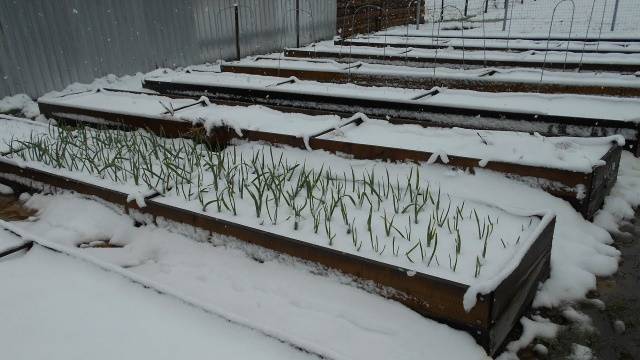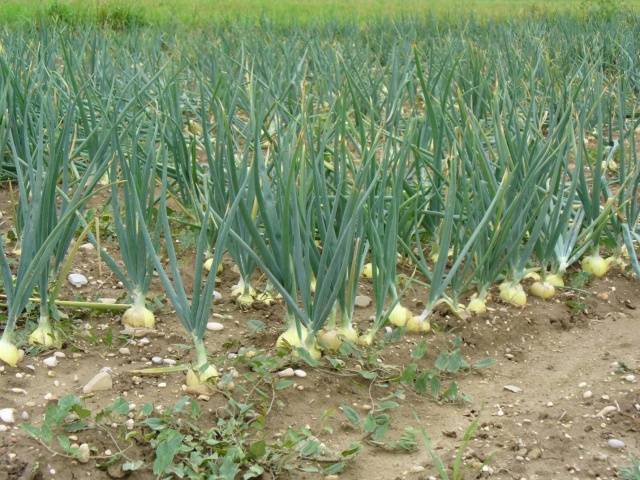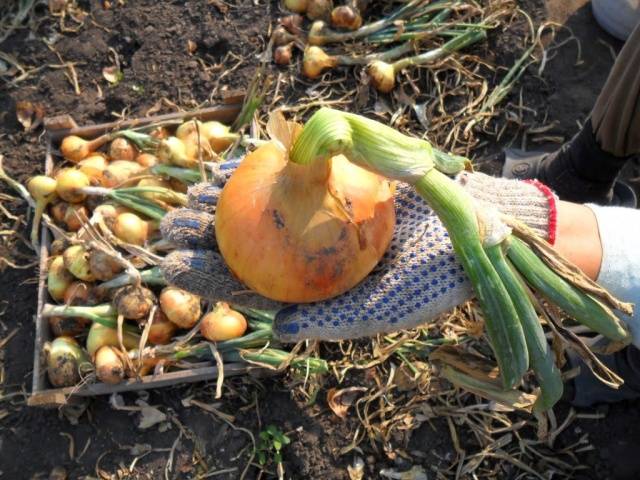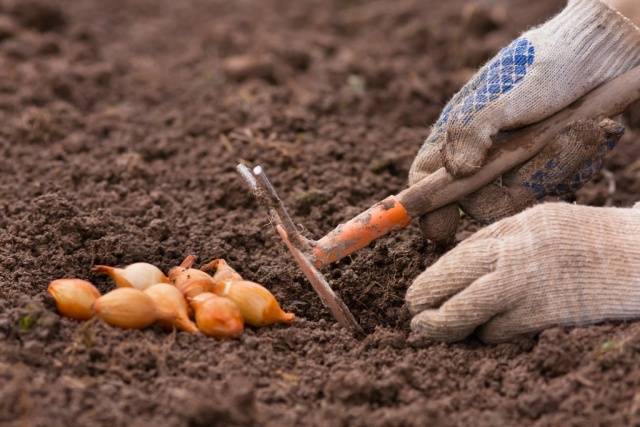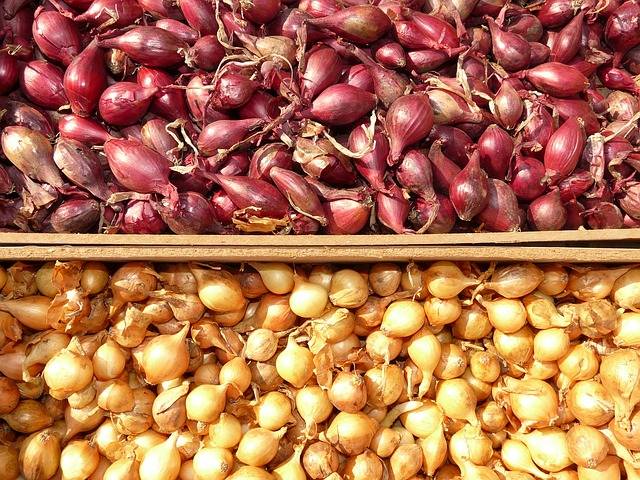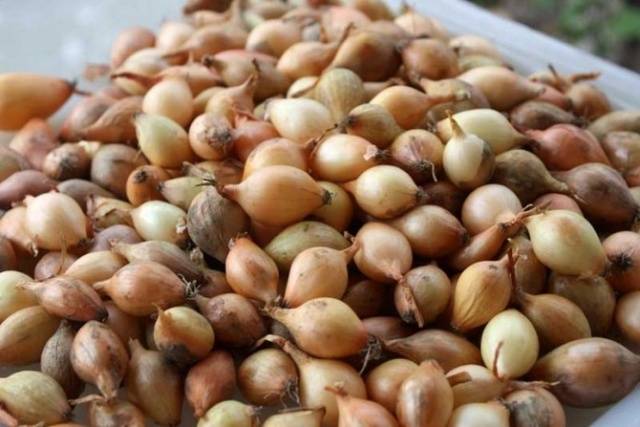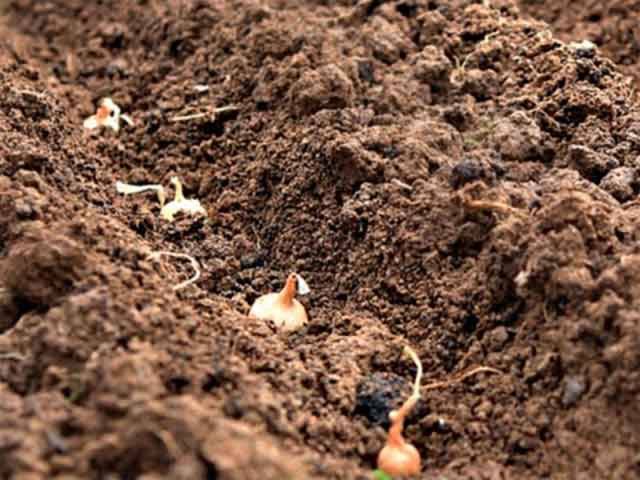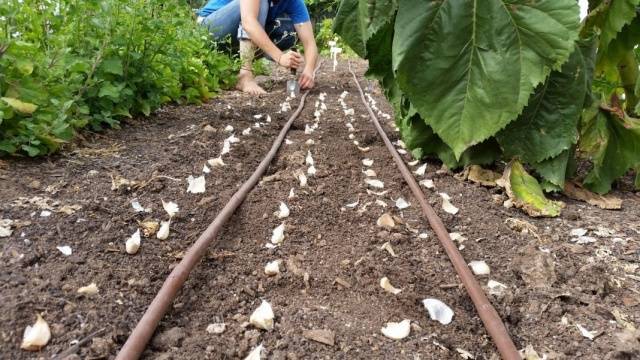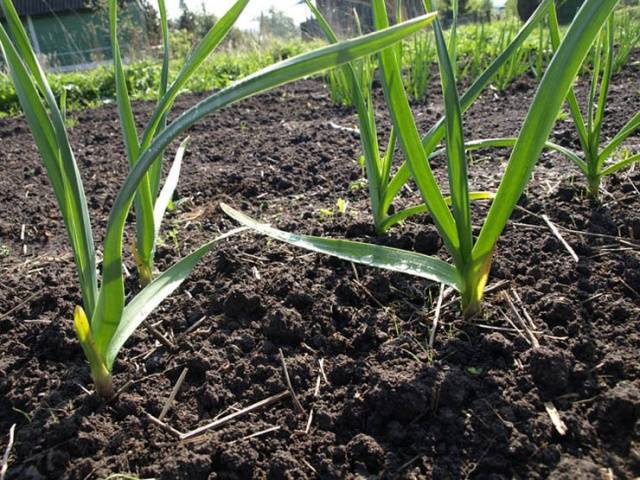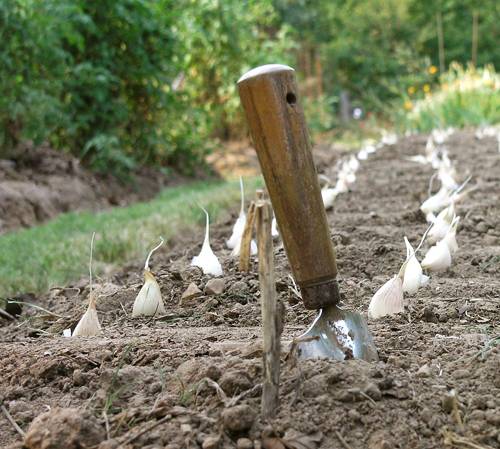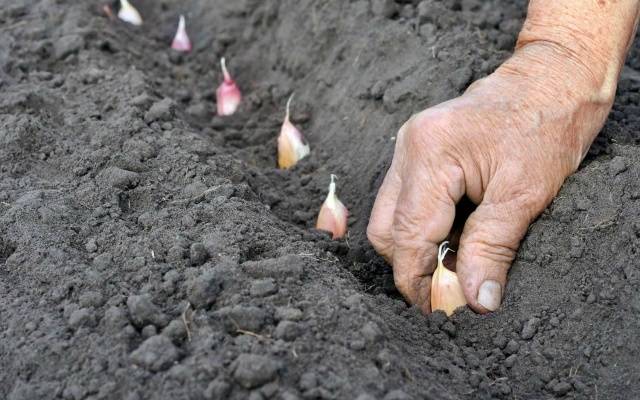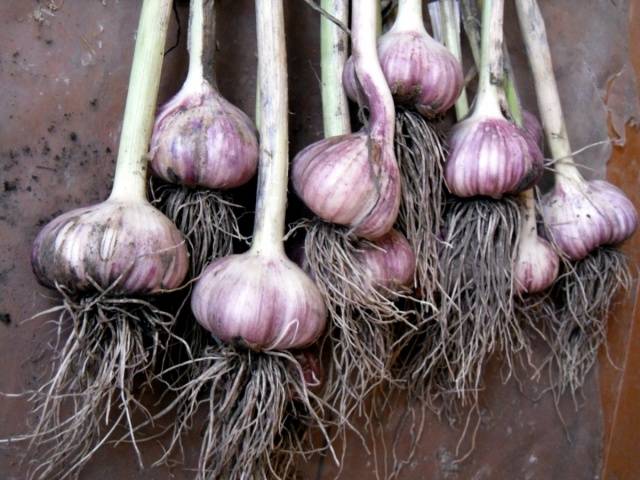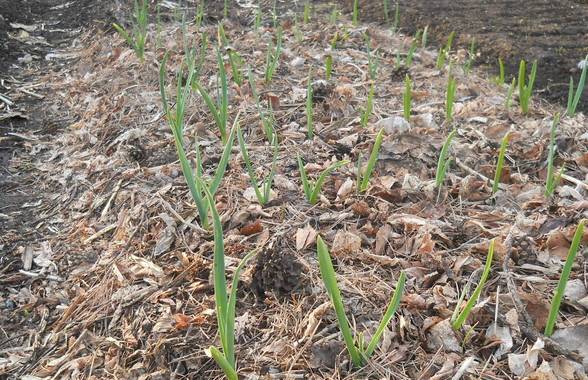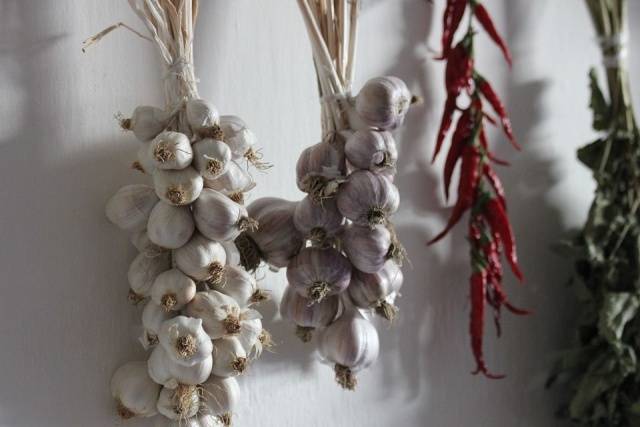Planting onions and garlic before winter is an alternative solution for those who want to save their own time and try new agricultural techniques. In fact, there is no single correct answer to the question of which crop is better: planted in autumn or spring. Planting of onions and garlic in winter has its advantages: earlier germination, hardening of heads in winter frosts, stable harvest, in addition, the gardener does not have to worry about storage for planting material. In many ways, the processes of growing winter onions and garlic are similar, but there are also some nuances here.
This article will be about the peculiarities of planting winter onions and garlic, how to properly plant each of these crops and when it is better to do it.
How to grow winter onions
Until recently, no one in Russia planted onions before winter, all this was done in the spring. But today there are a lot of varieties of winter crops, so it is possible to plant bulbs in late autumn even in Siberia and the Urals, not to mention the south of the country and the middle lane.
The secret to the success of winter planting lies in freezing the bulbs: a couple of weeks after planting, the onion sets will take root, but will not have time to germinate until the first stable frosts. In this state, the bulbs will "sleep" until the spring heat, after which they will immediately grow.
The winter planting method has a lot of advantages, including a high moisture content of the soil after the snow melts, and a high ripening rate, which makes it possible to plant another crop in place of onions in the same season.
How to determine when to plant onion sets
In determining the timing of planting onions, the climatic conditions of the region play an important role. The gardener must understand that the bulbs will need time to adapt - about 2-3 weeks. That is, during this period there should not be frosts yet. However, prolonged autumn heat is also detrimental to the planting material - the onions will release feathers that will freeze even with slight frosts.
Therefore, the timing of planting winter onions should be selected so that in 3-4 weeks stable cold begins in the region. Only in this way will the bulbs winter well and begin to grow in full composition under the spring sun.
In areas with not very frosty winters, it is recommended to plant onions from late October to early November. Experienced gardeners assure that if the thermometer has been showing +5 degrees for several days, it is time to plant the bulbs in the ground.
In the southern regions, winter onions are usually planted at the end of November, this is the only way it manages to take root, but does not let green shoots. In the north of the country, you should be guided by your own observations of the weather in previous seasons, sometimes winter onions in the North are planted already at the end of September.
How to choose a place to plant onions
Winter onions love well-fertilized, loose and moderately moist soils. therefore before planting, the beds must be fertilized using mineral additives or humus... The earth should be well dug up.
It is recommended to plant winter onions in the place of such crops:
- cereals;
- corn;
- beet;
- mustard;
- tomatoes;
- beans;
- cucumbers;
- cabbage.
To prevent onion sets from becoming infected with nematodes, you should not plant them in the place of potatoes, parsley or celery.
How to prepare planting material
Planting onions before winter, as well as in spring, is carried out by means of sevka - annual heads grown from seeds (nigella). The optimal size of the seed is 1-1.5 cm in diameter. Larger bulbs are stronger, but this is why they tend to shoot arrows, causing the bulb to shrink or deteriorate.
A small planting, up to 1 cm, does not have the strength to grow arrows, but small onions winter well in the soil, and in spring they give a high yield. Therefore, sorting out the planting material, you should select small, dense bulbs covered with husks.
How to plant onion sets in autumn
When the soil on the site is fertilized and dug up, you can start forming beds and planting seedlings. To do this, you need to do the following:
- Level and slightly compact the soil in the area.
- Make grooves about 5 cm deep so that the distance between them is 20-25 cm.
- Spread the onion into grooves at intervals of 5-7 cm (depending on the size of the seed), sprinkle with soil and tamp it a little.
- Immediately after planting, winter onions are not watered, but if there is no rain in the region, the beds can be moistened in 10-12 days.
- With the onset of frost, the beds need to be mulched, covering them with spruce branches, straw or dry leaves. So that the shelter is not blown up by the wind, it is pressed down with dry branches or boards.
Planting garlic in autumn
Unlike onions, they began to plant garlic before winter for a long time - it is this method of growing a spicy crop that domestic gardeners use most often. If the owner has always used the spring method of growing garlic (spring planting of cloves), it is better not to immediately switch to the winter method: in the first years, the seeds are separated, half are planted before winter, and the second part - with the onset of spring.
In regions with a harsh climate and snowless winters, it is also recommended to cultivate garlic simultaneously using the spring and winter methods - this way there are more chances to get a good harvest, because a lot depends on the weather.
Optimal timing of planting garlic
As already mentioned, the seeds of garlic and onions are very difficult to preserve - not all planting material will last until spring. Therefore, the heads of garlic collected this year are sorted out, the largest and healthiest heads are separated, disassembled into teeth and planted before winter.
The timing of planting garlic should be determined based on observations of the weather. In recent years, the climate in most regions has changed slightly, experts advise adhering to such a schedule - from September 25 to October 15. Later plantings may freeze out, while earlier ones may germinate prematurely.
It so happens that frosts begin suddenly, and the garlic has not yet been planted before winter. In this case, you can stimulate the root system by soaking the teeth for a couple of hours in a humate solution, and then drying them on a battery. After a couple of days, root rudiments will appear on such teeth, and they can be planted even in frozen soil.
Where to plant winter garlic
The place for planting garlic before winter should not be in the lowlands, since the spring floods will wash out all the cloves.It is better to choose a site on the southern or southeastern slope, so that the garlic is warmer, it is not blown by icy winds.
After potatoes and onions, it is better not to plant garlic, since these plants have the same pests and diseases - there is a high risk of losing the entire crop. You should not grow garlic for more than two years in one place - the soil should "rest" from onion crops for at least 4 years.
Preparing the garlic beds
The site for winter garlic is dug onto a shovel bayonet 10-14 days before the expected planting of the cloves. Before that, the land must be fertilized, since garlic loves nutritious and light soils. It is better to fertilize with rotted manure, humus or mineral complexes; it is strictly forbidden to use fresh manure - there is a high risk of developing pathogens.
When the earth settles after digging (after a couple of weeks), you can make grooves and plant chives. If you do not wait and immediately plant the garlic in the dug-up soil, the cloves will fall too deep, which will inhibit the growth of the plant in spring.
The planting material must be disassembled into teeth and dried thoroughly. For winter planting, only strong, hard teeth without traces of rot and other damage are suitable.
Planting garlic according to the rules
Growing garlic is a simple process, because this culture grows almost independently. You just need to plant the cloves correctly, and a good harvest of garlic is ensured.
It is recommended to follow these rules for planting garlic before winter:
- Before planting, the teeth are recommended to be calibrated - sorted by size.
- The planting depth of garlic is two heights of the clove, which is why it is more convenient to make grooves for the pre-sorted material.
- The spacing between the chives is 8 to 15 cm, depending on the size of the garlic.
- To make it convenient to care for the beds, it is necessary to leave 25-30 cm of spacing between the rows.
- To prevent the bottom of the garlic from rotting, it is recommended to pour a little sand or wood ash on the bottom of the grooves.
- You do not need to press the cloves into the ground, as the frozen ground can push them to the surface, which will lead to the freezing of the garlic. The teeth are simply laid out in the grooves and sprinkled with dry earth.
- From above, the planting is mulched with a thin layer (about 1.5 cm) of peat or garden soil with leaves.
Conclusion
There is nothing difficult in the winter planting. You just need to correctly determine when to plant onions and garlic before winter so that the heads do not freeze and do not germinate ahead of time. Then all that remains is to make the beds, plant onions and garlic, mulch a little and forget about planting until next spring.
You can learn more about the winter planting of onions and garlic from this video:
